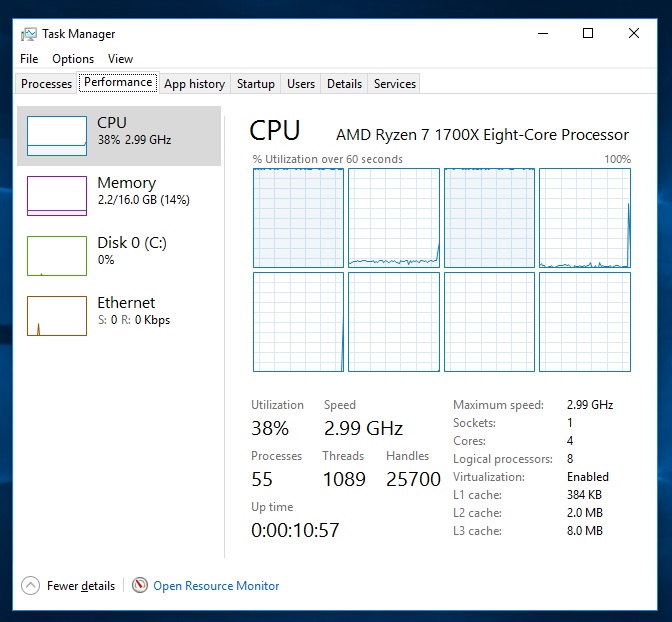Say whatever you want about their conclusion, but these core communication latency figures they recorded are fascinating!
Haswell-E actually has moderately lower latency when moving between logical SMT "cores" on the same physical core, but much higher latency than Ryzen when moving from physical core to physical core, at least until you try to ping a core on another CCX after which you see a massive latency spike obviously.
It's also interesting that on the ~42-42ns line for core-core communication on Ryzen there's quite a bit more variance compared to the relatively straight line on Haswell-E at around 78ns. Doesn't Haswell-E use a ring bus? I'm not a processor architect, but I'd expect that there would be less latency for cores that are closer along the ring, which is odd. Maybe someone with more knowledge can explain that to me. Could it be that the ring bus is just really, really fast? Or that there's another means of communication besides the ring bus? Or perhaps the faster paths have been artificially slowed down to meet the lowest common denominator for the sake of consistency?






















